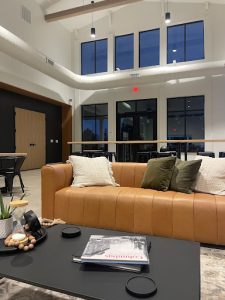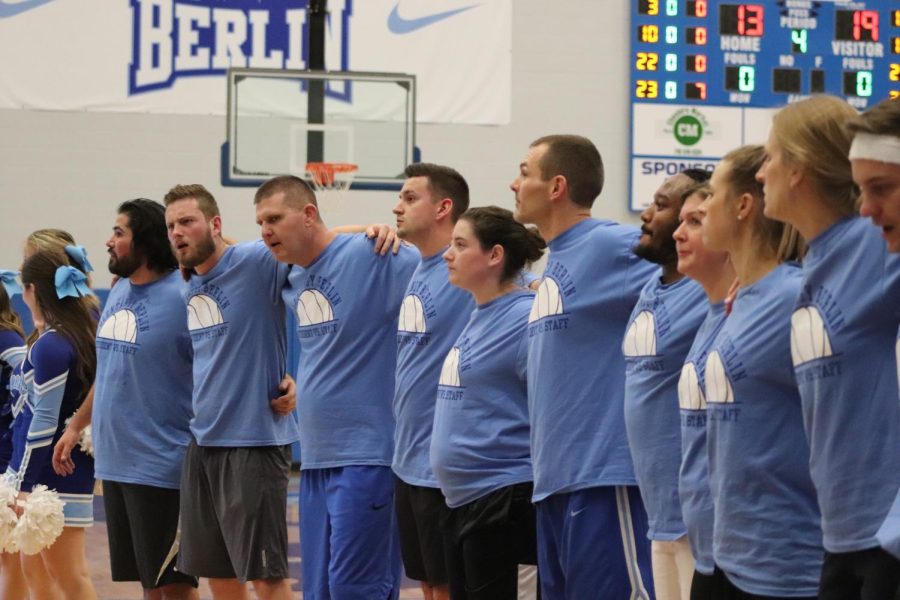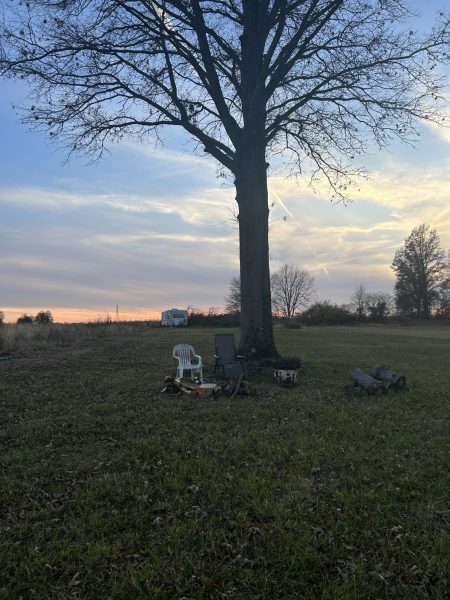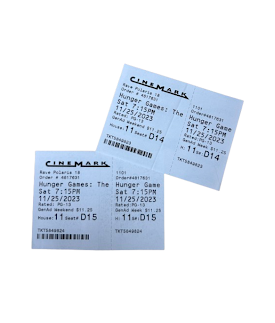Performing arts reveal heart of the program

Photo Courtesy of Unsplash
October 7, 2022
The performing arts department has grown exponentially after five years and deserves to be highlighted from start to finish. The department includes choir, orchestra, band, and theatre. The core of the program starts with its performers.
Question: What is your favorite part of performing arts? Why have you continued in the program?
Answers:
“My favorite part of the performing arts is getting to play and perform with a group of people that have the same interest as me. I stayed in the band because I love making music and creating something that other people really enjoy,” Ava Diederich ‘24 said.
“My favorite thing about the performing arts is the community. [It’s] a great place to meet people and get out of your comfort zone,” Claire Laber ‘25 said.
“I suppose I love the sense of camaraderie and community that comes with spending hours practicing together over the course of a year. This orchestra is encouraging and truly fun to be a part of. It is a wonderful environment and I feel very lucky to be a part of it,” Annabella Burton Boone ‘24 said.
If you do not play an instrument, sing, or act, that doesn’t mean you can’t get involved. Students have options to pick and try out instruments, regardless of what grade they are in. Those interested in theatre but don’t want to act may still participate in the crew: costumes, props, lights, run, construction, and so on.
Question: When did you enter the performing arts program? What has your experience been like?
Answers:
“It was in sixth grade when I started doing performance arts in school. I quit during my freshman and sophomore years but rejoined my junior year. It feels nice knowing you belong somewhere,” Kanada Ma ‘24 said.
“I started playing the flute in fifth grade and quit it that same year. Once football games were more accessible, I fell in love with the marching band. One day, I just decided to join the band and play the saxophone. It was pretty hard to start marching band since I hadn’t played for a long time. It was a totally new environment, everyone already knew each other for a long time and I wasn’t sure how to fit in. Even with this, I love marching band and playing the saxophone so it was well worth it,” a marching band member said.
The performing arts department welcomes all students into the program. The directors themselves encourage students of all grades to take the challenge and find their place in the department.
Question: How can people who haven’t performed before, start to get involved in the program?
“Choir is a great opportunity for singers of all levels to join for the first time or re-join after some time off from singing. Bass Chorus and Treble Chorus are our introduction courses where all our high school singers begin, no matter their grade level. Here they will learn fundamental skills, how to control their voice as an instrument, and how to read music while working on a wide variety of music. These are great courses to learn and build individual confidence while working in a safe, supportive team environment. After their year in Bass or Treble Chorus, students are able to audition for our advanced ensembles and our A’capella pop choir,” choir director, Mr. Sribanditmongkol said.
“One of the best ways is to sign up for Intro to Theatre and get started in the theatre classes we offer. The classes are a great way to build your skills and learn about what goes into full-scale production, as well as build confidence and comfort levels in [as Mr. S said] a safe, supportive environment. We offer courses after Intro in more specific topics like Acting, and Stagecraft. Theatre Seminar hits different topics like Musical Theatre or Directing, while Performance Ensemble allows students to work onstage or behind the scenes for a production that the class puts together. It’s smaller than our main stage ones but allows plenty of time to get comfortable in a collaborative class setting. Outside of classes, any student can audition to be onstage or apply to be part of the crew. Students are selected for the cast of a show based on their individual auditions and the crew will have application/interview questions on the form where students can share their experience and why they think they would be a great fit for the crew. We try to involve as many students as possible throughout the year, but some shows have room for more students than others and sometimes we can use everyone. We try to find ways for any and all students to be involved at least a little bit. This is where the classes can fill in gaps and help students grow to increase their chances of making it in a cast or crew,” theater director Mrs. Gibbons said.
“In the orchestra, members typically already have experience with their instruments. However, students have reached out to try orchestra for the first time and it is possible! Current orchestra members have helped tutor these students, and I have as well. If anyone wanted to join orchestra in high school, it might take a little effort, but it is definitely possible. All they would have to do is pay me a visit. All are welcome… We also sometimes need piano and guitar players if our music calls for them. We also have semester courses like Intro to Music Theory and Music Appreciation that are open to all students, regardless of being in one of our ensembles or not,” orchestra director Mrs. Henning-Toops said.




















